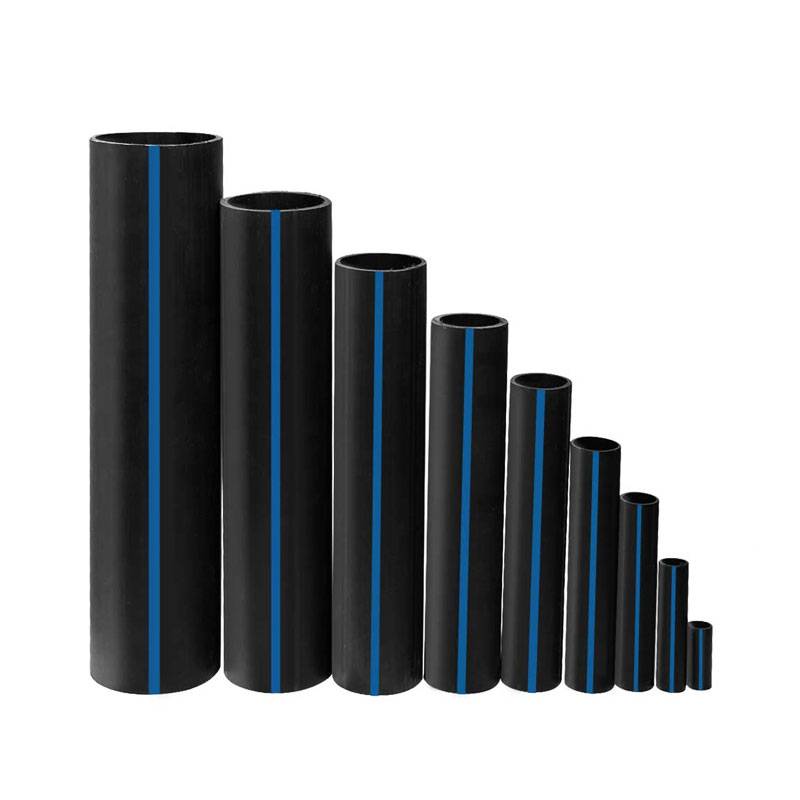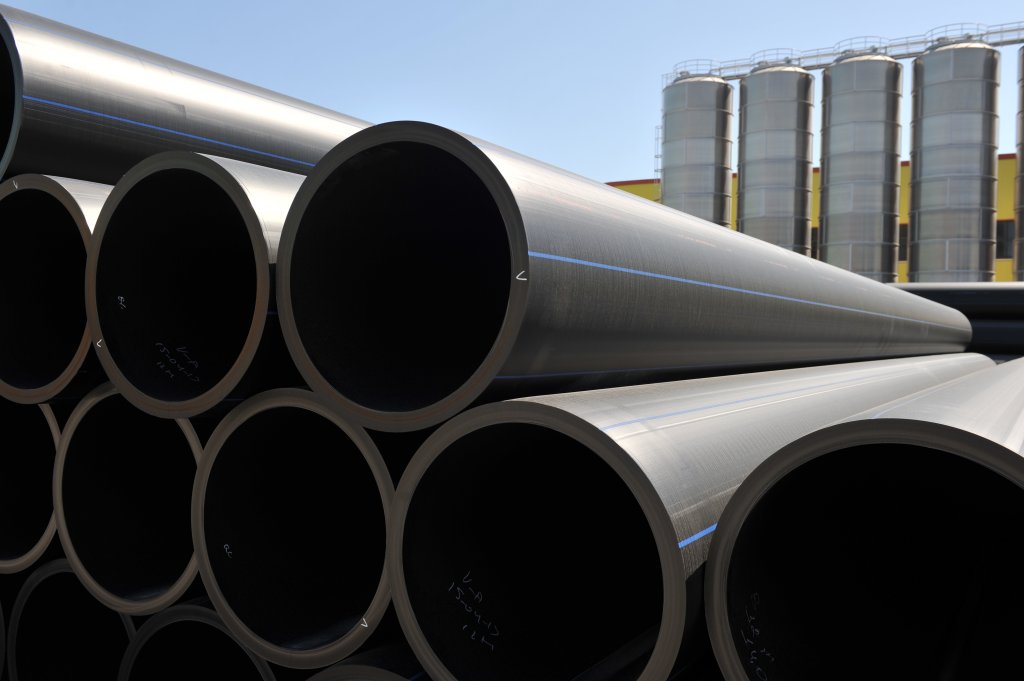Understanding the Trick Advantages of HDPE Pipeline for Water and Wastewater Monitoring
Making use of HDPE pipeline in water and wastewater management offers countless advantages that warrant factor to consider. Its exceptional longevity and long life-span make it a preferred option for numerous projects. In addition, the material's resistance to deterioration and chemical damages enhances its dependability in numerous atmospheres. Nevertheless, the benefits extend beyond just longevity and resistance. Discovering its cost-effectiveness and ecological effect reveals also a lot more engaging factors for its extensive adoption in modern-day facilities
Phenomenal Sturdiness and Durability

HDPE pipeline sticks out for its outstanding resilience and longevity, making it a favored selection in water monitoring systems. Created from high-density polyethylene, these pipes can endure substantial stress and stress and anxiety, making certain trustworthy performance with time. Their durable nature allows them to withstand severe environmental problems, including temperature changes and soil activities, which can cause other products to fail.
The lifespan of HDPE pipelines commonly exceeds 50 years, giving an affordable option for districts and markets alike. In addition, the material's light-weight residential properties simplify installation, reducing labor prices and timeframes. This durability decreases the demand for regular repair services or substitutes, even more boosting its financial charm.
In water monitoring applications, the reliability of HDPE pipelines means less disruptions and boosted solution continuity, making them essential to sustainable infrastructure growth. The combination of sturdiness and longevity solidifies HDPE's role as a cornerstone in reliable water management remedies.

Resistance to Rust and Chemical Damages
While many materials give in to corrosion and chemical damages in time, HDPE pipes show remarkable resistance, making them optimal for numerous water management applications. This resilience comes from the molecular structure of high-density polyethylene, which is inherently non-reactive and does not wear away like steels or degrade from direct exposure to severe chemicals. Because of this, HDPE is very efficient in settings with hostile compounds, such as wastewater systems that might consist of acids, bases, and natural solvents.
Furthermore, HDPE pipelines can stand up to ecological factors such as soil acidity and saline problems, better improving their suitability for diverse applications (Pipe Manufacturing Midland TX). Their capacity to preserve architectural stability with time decreases the threat of leaks and failings, which is crucial in ensuring the safety and security and reliability of water distribution and wastewater administration systems. As a result, the resistance to rust and chemical damage significantly adds to the general effectiveness and durability of HDPE piping options
Cost-Effectiveness and Financial Benefits
When considering the economic implications of water monitoring systems, the cost-effectiveness of HDPE pipes becomes apparent. These pipelines use lower installment and maintenance costs contrasted to standard products like metal or concrete. Their light-weight nature simplifies transportation and installment, leading to decreased labor expenses. Furthermore, HDPE pipelines display a long life-span, commonly going beyond half a century, which translates to fewer replacements and long-lasting financial savings.
The resistance of HDPE to deterioration and chemical damage reduces the demand for costly fixings and replacements. The pipelines additionally support reliable water circulation, reducing power costs related to pumping systems. By mitigating leakages and water loss, HDPE pipes add to considerable financial advantages for districts and markets alike. On the whole, the first financial investment in HDPE piping can generate substantial economic returns over the life expectancy of the water administration system, making it a sensible option for sustainable infrastructure development.
Ecological Sustainability and Minimized Influence

Convenience and Flexibility in Setup
As a result of their one-of-a-kind properties, HDPE pipelines offer amazing convenience and versatility in installment, making them suitable for a large range of applications. Their light-weight nature enables easier handling and transportation, reducing labor costs and installation time. HDPE pipelines can be bent and formed to fit different terrains and project needs, which is especially advantageous in challenging atmospheres.
Furthermore, their resistance to deterioration and chemical damage allows for installation in diverse settings without the need for specialized safety coverings. The capacity to fuse joints develops a continuous, leak-free system, improving the general stability and integrity of the installment. HDPE's versatility also fits ground motion, lowering the risk of damages in locations prone to moving dirt. Generally, these features make HDPE pipes not just versatile but additionally a preferred choice for water and wastewater monitoring systems.
Frequently Asked Inquiries
Just How Does HDPE Pipeline Contrast to PVC in Water Monitoring Applications?
HDPE pipe uses remarkable flexibility, resistance to corrosion, and sturdiness contrasted to PVC. Its lighter weight promotes simpler installment, while its long lifespan reduces substitute costs, making HDPE a preferred selection in water management applications.
What Is the Life Expectancy of HDPE Pipeline Under Common Conditions?
Under regular conditions, HDPE pipelines can have a life expectancy ranging from 50 to 100 years. Their longevity and resistance to corrosion contribute to their long-term performance in numerous applications, making them a reliable option for facilities.
Are HDPE Piping Recyclable After Their Service Life?
Yes, HDPE pipelines are recyclable after their solution life. American Plastics HDPE Pipe Manufacturing. They can be processed and repurposed right into new products, considerably reducing environmental impact and advertising sustainability within the sector, making them an environmentally friendly choice for piping options
What Is the Setup Refine for HDPE Pipes?
The setup procedure for HDPE pipes entails website prep work, trenching, pipe combination or mechanical signing up with, backfilling, and pressure screening. Proper methods ensure a long lasting and efficient system for delivering water and wastewater successfully.
Can HDPE Pipes Be Made Use Of for Both Potable and Non-Potable Water Equipments?
Yes, HDPE pipes can be utilized for both potable and non-potable water systems. Their flexibility, longevity, and resistance to rust make them appropriate for different applications, ensuring secure and effective transport of water in different contexts.